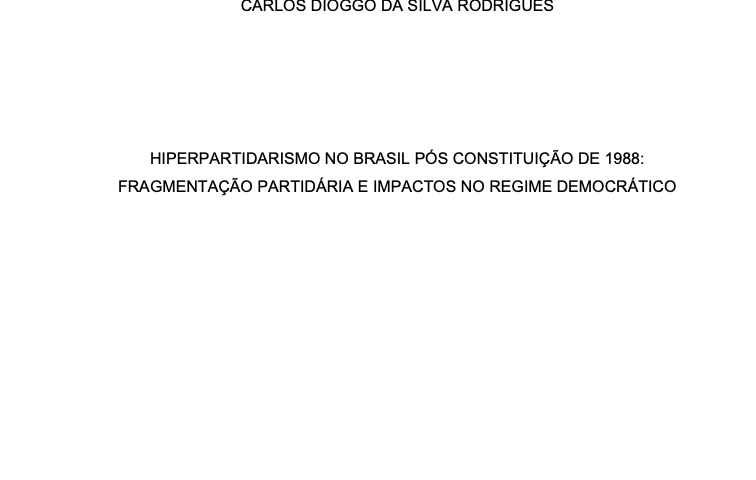The Influence of Federal Institutes of Higher Education (IFES) on Budget Decisions in the National Congress: The Case of the University of Brasília (UNB) from 2000 to 2009
11 de August de 2022
Decisions of the Judiciary Branch create a crisis in the harmony and independence of the Legislative and Executive Branches, threaten democracy, and cause legal uncertainty.
5 de June de 2024Hyperpartidarism in Brazil after the 1988 Constitution: party fragmentation and impacts on the democratic regime

This work sought to analyze the phenomenon of hyperpartisanship in Brazil with the advent of the 1988 Federal Constitution. good understanding, with special development of historical foreshortening in Brazil. Next, we also tried to present the conceptualization sought in the best doctrine of electoral systems, discussing the necessary about their functioning and seeking to identify their interference in the democratic regime. Therefore, now well prepared, we move on to the phenomenon of party hyperpartisanship, trying to identify it as a recent phenomenon, made possible by the normative framework of the Federal Constitution of 1988, when the multiparty system was adopted without necessary limiting mechanisms. From this, there is a hyperfragmentation of political parties in the country, so that the existence of so many party associations is not justified in the current social dynamics. It also takes care of the so-called rental subtitles, a problem derived from equal importance for substantially affecting the political scenario. As a consequence, coalition presidentialism is analyzed as a means of circumventing the difficulties of the current system and the limitation to the phenomenon known as party performance clause. For the present work, the inductive method was used for its development, adopting bibliographic materials, jurisprudence and legislation as instrumental procedures.
Author: Carlos Dioggo da Silva Rodrigues
Source: https://www.repositorio.ufal.br/handle/123456789/11055
